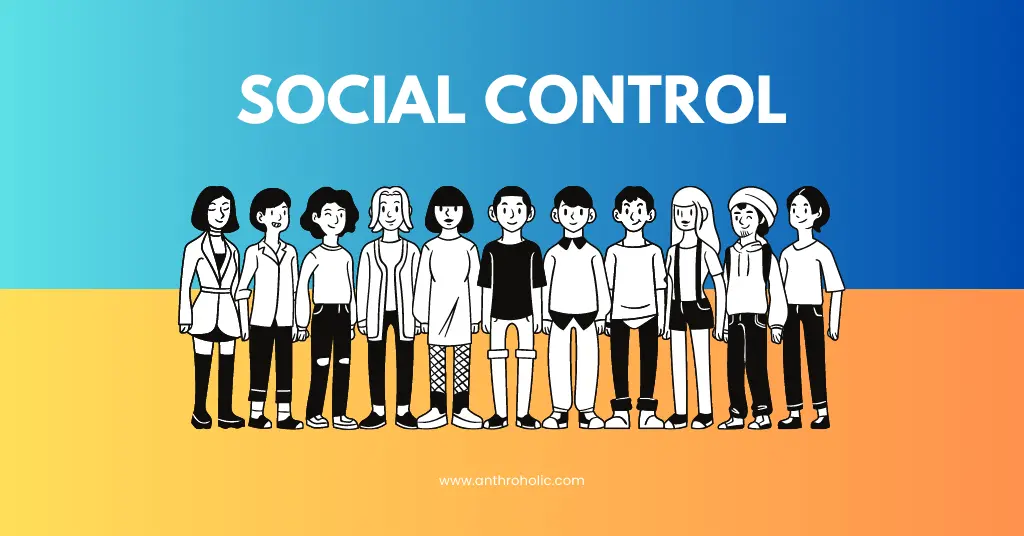Social Control

Social control refers to the mechanisms, strategies, and institutions used by societies to regulate individual behavior and maintain social order. It encompasses a variety of methods and practices, both formal and informal, designed to ensure conformity to social norms, rules, and laws. Social control is essential for the stability and functioning of any society, as it helps to prevent chaos and conflict.
Here are the main aspects of social control:
-
Formal Social Control:
- Legal Systems: Laws, regulations, and formal rules enforced by governments and legal institutions.
- Law Enforcement: Police, courts, and correctional facilities that ensure compliance with laws and administer penalties for violations.
- Bureaucracies: Institutions and organizations that enforce rules and policies within specific domains (e.g., schools, workplaces).
-
Informal Social Control:
- Socialization: The process through which individuals learn and internalize societal norms and values, typically through family, education, peer groups, and media.
- Cultural Norms: Shared beliefs, values, and practices that guide behavior in everyday life.
- Public Opinion: Social approval or disapproval expressed by the community, which can influence individual behavior.
- Social Sanctions: Informal consequences such as praise, ridicule, gossip, or ostracism used to enforce conformity.
-
Mechanisms of Social Control:
- Norms and Values: Expectations for behavior that are considered acceptable and desirable in a society.
- Rituals and Traditions: Practices that reinforce group identity and cohesion.
- Education and Social Institutions: Schools, religious institutions, and media that transmit cultural values and norms.
- Surveillance: Monitoring of behavior, which can be done by individuals, communities, or institutions to ensure conformity.
-
Theoretical Perspectives:
- Functionalism: Views social control as necessary for the stability and functioning of society. Norms and rules are seen as essential to maintain order and prevent deviance.
- Conflict Theory: Argues that social control mechanisms are used by powerful groups to maintain their dominance and suppress less powerful groups.
- Symbolic Interactionism: Focuses on how individuals understand and interpret social control in their daily interactions and the meanings they attach to these mechanisms.
In summary, social control is a fundamental aspect of societal organization, aiming to promote order and stability through a combination of formal and informal methods. It helps to ensure that individuals act in ways that are consistent with societal expectations, thereby facilitating coexistence and cooperation within a community.
Thank you,
